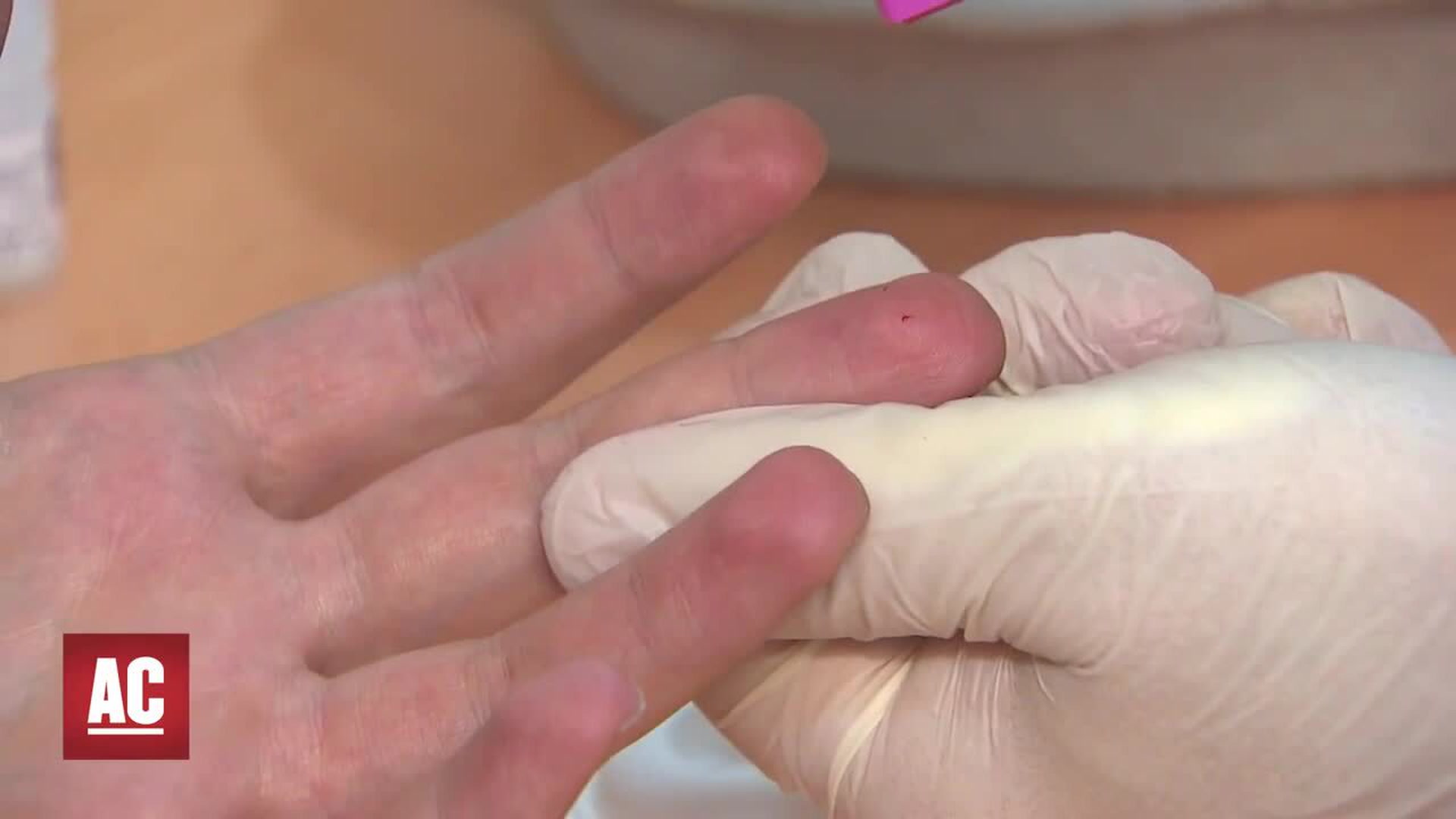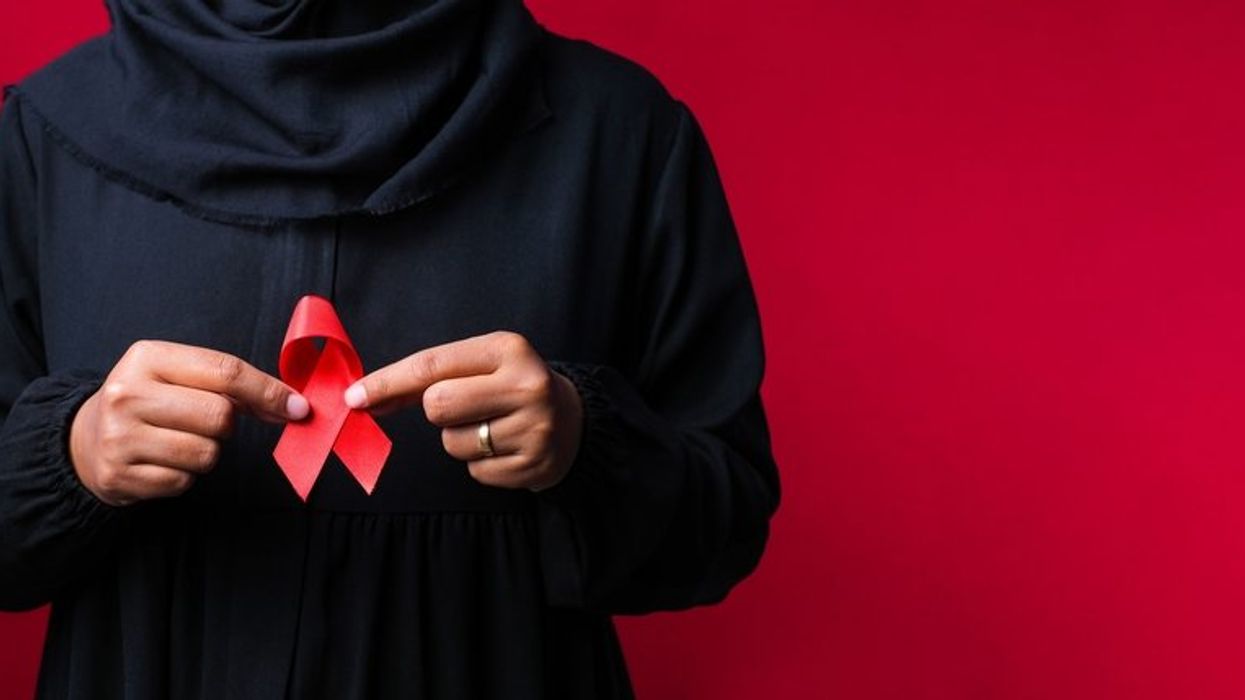(CNN) — After nearly a decade of working as an advocate for HIV and AIDS treatment, Michael Chancley said he came to a sobering realization.
“Seeing that people who look like me, who hang out at the same places as me, who were testing positive or in HIV care made me realize like, ‘Oh, you could be vulnerable to acquiring HIV as well,’” he said.
So, the 38-year-old said, he started using PrEP, which stands for pre-exposure prophylaxis, a medication that decreases a person’s risk of getting HIV from sex or injection drug use by about 99% when used as prescribed, according to the US Centers for Disease Control and Prevention. The medication can be taken via pill or shot.
Thousands of Black men could benefit from the medication, but relatively few are taking it.
About 1.2million people in the US were living with HIV in 2021, the most recent year for which data is available, according to the CDC. More than 52 percent of new HIV infections that year were among people who lived in the South.
According to preliminary data released by the CDC in October, there was an increase in PrEP prescriptions from 2019 to 2022, but “severe and widening inequities persist.” The CDC also noted that according to estimates, “94 percent of White people who could benefit from PrEP have been prescribed it, but only 13 percent of Black and 24 percent of Hispanic/Latino people who could benefit” have been prescribed the drug.
Although Black Americans accounted for 42 percent of new HIV diagnoses in 2022, only 14 percent of PrEP users were Black, according to AIDSVu, an online map that tracks HIV incidence across the US.
Dafina Ward, executive director of the Southern AIDS Coalition, an organization that aims to end the twin HIV and sexually transmitted infection epidemics in the South, said that a lack of hospitals and doctors, especially in rural areas, canaccount for a higher rate of the disease.
“You have hospitals and medical providers closing at record rates, especially rural hospitals,” Ward said. “You don’t have comprehensive sexual health education required in most of our schools. So, you take the full dynamic of what is happening in a region and then you layer on top of that the health disparities that are sure to follow.”
Barriers to PrEP
Under the Affordable Care Act, also known as Obamacare, PrEP “must be free under almost all health insurance plans,” according to the CDC. The agency also noted that most Medicaid programs and insurance plans cover the medication.
But Chancley said that many in the Black community remain uninsured and that lower incomes and a lack of support from doctors can also prevent those who need the drug the most from gaining access.
Chancley said he has seen people who live in rural areas travel 2 to 3 hours away for PrEP because they do not have clinics or doctors near them who provide PrEP.
What’s more, lab work and consistent HIV and STI screenings are required for continued use of the medication, which can also become a financial burden.
“A lot of people have reached out to us because even with insurance coverage, PrEP lab should be covered, we’re seeing that insurance companies have not been compliant,” he said. “So, often people have to discontinue PrEP or find the resources to cover labs and provider visits.”
Chancley is a communications and mobilization manager for PrEP4All, an organization that advocates for a nationwide program to make accessing PrEP easier. But he said that although he’s been using the medication for over eight years, even he has faced obstacles with his prescription.
“Even as early as this year, as an advocate … still having providers who are like, ‘Well, it’s easier to just use condoms’ and it’s like, ‘I want this medical resource. I know my needs. I know what my risks are, and this is something that I’m asking you for.’ I’m gonna push you until I get it,” he said. “But I also understand that not everybody is an advocate who can also advocate for themselves.”
Ward said stigma and shame pose additional barriers, as does a lack of education about the benefits of the regimen.
“Are we having messaging and spaces where Black folks are talking about health and talking about how we keep ourselves healthy and PrEP being a readily available part of that tool kit? I don’t think so,” she said.
“How do we make sure that we have providers that can make PrEP available, that providers are educated in a way to be culturally sensitive to what folks may be walking in the door with?”
Expanding Access
In December 2022, the Biden administration released a five-year strategy to end the HIV/AIDS epidemic by 2030. President Joe Biden also proposed a 10-year $9.8 billion National PrEP Program that would make the medication available to all Americans.
But Chancley, who is a strong advocate for a national PrEP program, said there are systemic issues – like expanding insurance coverage and health care deserts –that must be addressed before access can be expanded. He hopes those issues would be address through a national program.
Chancley and Ward both said that discussions about PrEP should also be included in school curriculums on preventing STDs and HIV, instead of solely focusing on condoms and abstinence.
As he continues his advocacy work, Chancley said that pushing a medication is not his main priority – it’s ensuring that his patients and community remain safe and healthy.
“The ultimate goal is to keep people healthy and keep them HIV-negative or, if they test positive, helping them get into HIV treatment and support services.”
The-CNN-Wire
™ & © 2023 Cable News Network, Inc., a Warner Bros. Discovery Company. All rights reserved.
Helping those affected by HIV in the Latinx Community

Video Source: Advocate Channel


















































